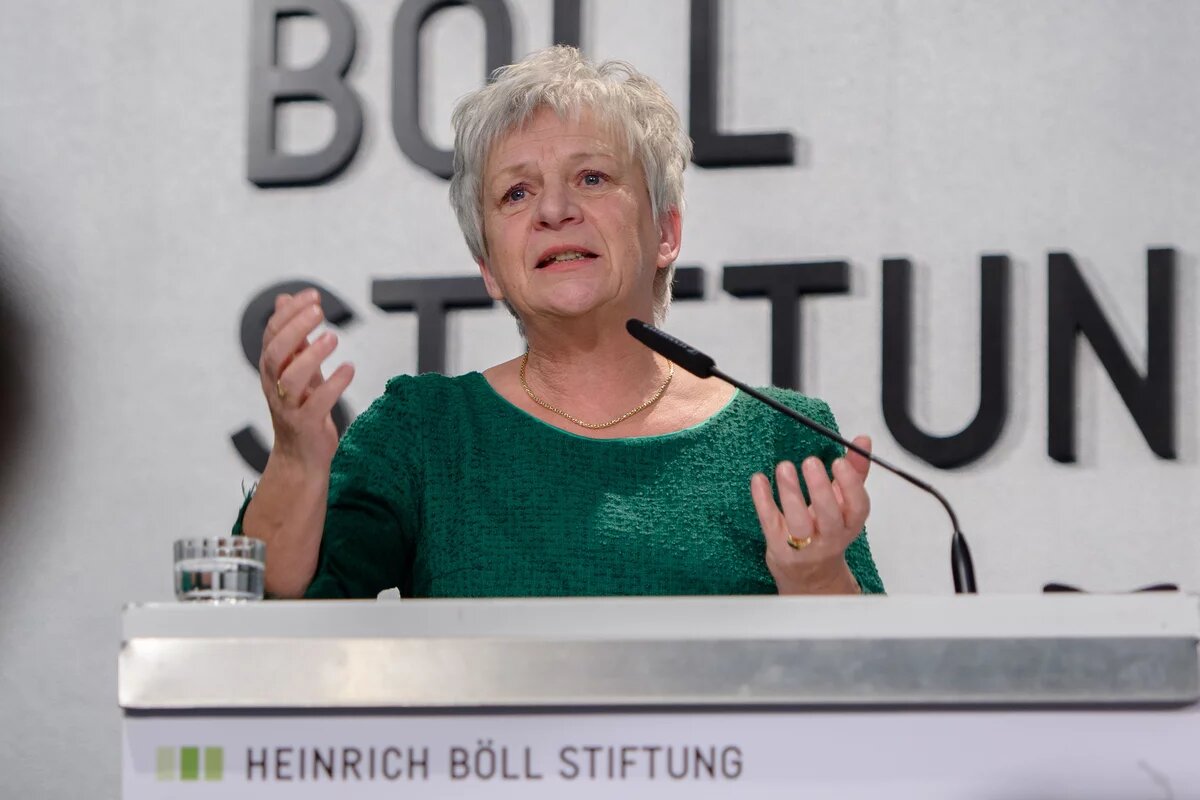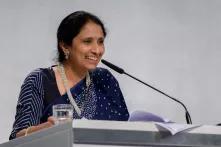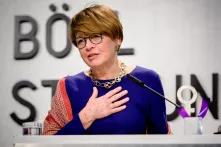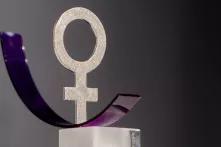Each year, the Anne Klein Women’s Award celebrates Anne Klein and her many political, legal and social achievements in the fight for the rights of women, lesbians and gays, and for the right to live a self-determined life in liberty. This year, the Anne Klein Women‛s Award goes to Dr. Prasanna Gettu from India.
What follows is the speech given by Barbara Unmüßig on occasion of the award ceremony on 6th March 2020.

Anne Klein fought against discrimination and violence all her life. In the 1970s, she set up a feminist legal aid centre and campaigned for the creation of Berlin‛s first women‛s shelter. As a Senator in Berlin she secured funding for the then three women‛s shelters and, even more importantly, she abolished the principle of co-payment for women who sought refuge in those shelters.
A guiding principle of Anne‛s life was to protect women against violence and to provide them with tangible aid – and this is what links her to this year‛s winner of the Anne Klein Women‛s Award, Prasanna Gettu.
In Prasanna Gettu we are honouring a woman who, in 2001, together with her colleagues, started to help women who had become victims of intrafamilial or domestic violence – and she did this by offering them support that was at once tangible and holistic. Her organisation, the International Foundation for Crime Prevention and Victim Care, offers shelter to women in emergency situations, provides medical and psychosocial support, they work to comfort the women who contact them and help them to find their way back into everyday life.
It is a major objective for Prasanna and her allies to enable women, who have become victims of violence, to live in selfdetermination and in dignity. With her organisation she is active in prevention, trying to break down the structures that perpetuate violence in India, and to change the patriarchal image of women through awareness campaigns and training sessions at institutions ranging from universities to police stations.
According to studies undertaken by the G20 and the Thomson Reuters Foundation India is the world‛s most dangerous country for women. The world‛s greatest democracy ranks behind countries such as Saudi Arabia, Somalia, Afghanistan or Jemen. The news that reached us just recently from New Delhi are horrifying – at least 23 people were killed, hundreds injured, and many women have become victims of targeted attacks and sexual violence, the sad result of riots instigated by Hindu-nationalist movements and mobs against the Muslim minority.
Honour killings, rape, femicides, dowry deaths – female infanticide- violence against women and girls happens on a daily basis. Again and again, dreadful reports from India about violence perpetrated against women in public make the headlines even in Germany.
The good news is, more and more young women and men are confronting this kind of violence, protesting all across India against violence and in support of women‛s rights. Prasanna has great hope for this younger generation, although she stresses that patriarchal structures and mindsets have deep roots in Indian society.
Following traditional family rules, women leave their homes after getting married and become part of their husband‛s family. This has sweeping repercussions for the social standing and the rights of women. Often, they have to subjugate to the hierarchy in their new home. Unfortunately, for many women in India, violence within the family is part of their every day, with a third of married women suffering abuse at the hands of their husbands or his family. One in ten women experience serious domestic or sexual violence in their home.
Although outlawed, “bride burning” or acid attacks on women are still common in India, with an official count of around 90,000 victims each year. Every month Prasanna encounters between 100 and 120 victims of these attacks, over 60% of which will succumb to their injuries. Those women who survive do not receive the medical and psychological care they require.
This is where Prasanna and her colleagues come in. Initially they will provide medical care to the victims in hospital, they provide hope and support the women in finding a way back into their lives.
domestic and sexual violence occurs across all social strata, castes and religions. According to Prasanna, acid and burning attacks are more prevalent among the lower classes, while upper-class women are more commonly poisoned or strangulated. – violence against women can occur in all households, however, says Prasanna, her experience tells her that "the higher the social position, the likelier it is that violence will be hushed up."
Dear Prasanna, it is thanks to you that India now has its first emergency response hotline for the victims of acid and burning attacks, and you yourself and your colleagues answer calls around the clock. Finally, there is also a therapeutic centre offering trauma-sensitive medical help.
Dear Prasanna, you once said, "self-empowerment is such a big word." How does it work? What does it mean in practice? You work tirelessly to find an individual answer for each and every women, that turns to you. The Anne Klein Award is an award meant to encourage, to thank, to express solidarity with you and your organisation, the International Foundation for Crime Prevention and Victim Care.
We, the prize jury of the Anne Klein Women‛s Award, greatly admire your exceptional, tangible and political support for and dedication to the victims and survivors of violence. Your work is one of a kind in India, and you are pioneers on the long path towards a society with gender justice – that is, towards a country where women may live in liberty and safety.
Dear Prasanna, despite personal threats and hostile reactions, you always stand at the side of the survivors, of the women and children, helping them to make their own way, no matter what way that may be.
On behalf of the prize jury, congratulations to the 2020 Anne Klein Women‛s Award.


